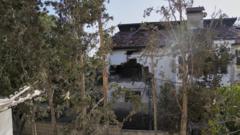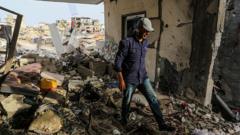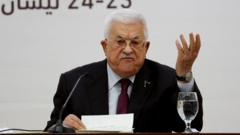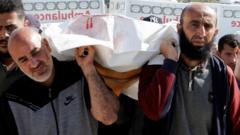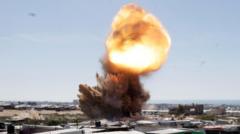In a notable admission, Israel's military has acknowledged responsibility for a fatal attack on a United Nations compound in Gaza, which claimed the life of a Bulgarian aid worker. This incident, which occurred on March 19 in Deir al Balah, has raised alarm over the safety of humanitarian operations in a region suffering from dire conditions. Following the attack, U.N. Secretary-General António Guterres took immediate action to withdraw a significant number of international staff amid growing safety concerns for the approximately two million Palestinians in Gaza.
Israel's Rare Apology for Fatal Attack on U.N. Aid Workers in Gaza

Israel's Rare Apology for Fatal Attack on U.N. Aid Workers in Gaza
Israel admits to killing a Bulgarian aid worker in a tank strike on a U.N. guesthouse, escalating concerns about the safety of humanitarian operations in Gaza.
The Israeli military initially denied involvement, claiming an investigation found no connection to their forces and instead blamed Hamas for using U.N. facilities as shields. However, following widespread condemnation, they issued an apology, stating that they are undergoing reviews to prevent such incidents in the future. This marks the second acknowledgment of a wrongful strike on aid workers by Israeli forces within a week, highlighting the mounting dangers faced by those providing assistance in one of the world's most precarious conflict zones.
In the aftermath of the attack, calls for accountability and measures to improve protections for humanitarian workers have intensified, as the United Nations emphasizes that the Gaza conflict is the deadliest for U.N. personnel in history. Furthermore, the incident raises critical questions about the operational conduct of military forces within populated civilian areas and the complexities of wartime accountability.
In the aftermath of the attack, calls for accountability and measures to improve protections for humanitarian workers have intensified, as the United Nations emphasizes that the Gaza conflict is the deadliest for U.N. personnel in history. Furthermore, the incident raises critical questions about the operational conduct of military forces within populated civilian areas and the complexities of wartime accountability.


